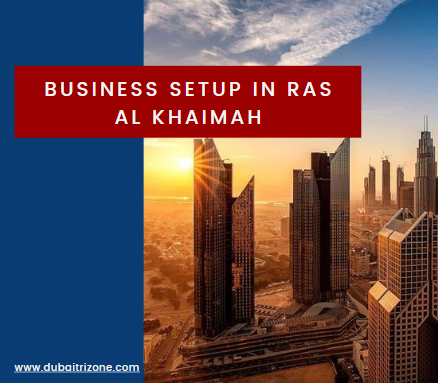Strategic Excellence: Trizone’s Guide to Corporate Tax in the UAE
Corporate taxation is a cornerstone of a nation’s economic framework, providing governments with essential revenue for public services. The United Arab Emirates (UAE) has carved a niche as a thriving business hub, drawing global entrepreneurs and investors. In this blog post, we delve into the intricacies of corporate tax in the UAE in 2023, exploring its history, laws, and the distinct advantages offered by Trizone corporate services.

History of Corporate Tax in UAE 2023

The UAE’s corporate tax history is relatively concise, with the inaugural law introduced in 1965, targeting foreign oil companies. A pivotal shift occurred in 1980 when the government eliminated corporate tax for all businesses, establishing the UAE as a tax-friendly haven. This approach has significantly contributed to the nation’s 11th global ranking for ease of doing business in 2020, as acknowledged by the World Economic Forum.
Types of Corporate Tax in UAE 2023

Two primary types of corporate tax coexist in the UAE: Corporate Income Tax (CIT) and Value-Added Tax (VAT). While the UAE lacks federal CIT, certain businesses pay branch taxes, applicable to foreign company branches within the UAE. The tax rate for branch taxes is 20% of the taxable income. Additionally, the introduction of VAT in 2018 at a modest 5% has become a vital revenue stream for the UAE government.
Exemptions and Deductions

To foster business growth and attract foreign investments, the UAE government offers strategic exemptions and deductions. Businesses in designated free zones enjoy a corporate tax exemption for up to 50 years, while companies with less than AED 187,500 in annual revenue are exempt from VAT registration. Moreover, entities incurring losses can carry them forward for up to five years, offsetting future taxable profits. Notably, companies investing in specified infrastructure projects can secure a tax exemption for half a century.
Penalties for Non-Compliance

Stringent tax compliance regulations exist in the UAE, with severe penalties for non-compliance, including fines, imprisonment, and potential business closure. To mitigate these risks, businesses must maintain meticulous accounting records compliant with VAT regulations. Failure to register for VAT on time or submitting inaccurate or late tax returns can result in fines ranging from AED 500 to AED 50,000.
Trizone Corporate Services Advantage

In this tax-friendly landscape, Trizone corporate services emerge as a strategic ally for businesses seeking seamless navigation of the UAE’s corporate tax environment. With a commitment to efficiency and compliance, Trizone offers expert assistance in corporate tax matters, including tax planning, compliance, and optimization strategies tailored to individual business needs.
In summary, the UAE’s business-friendly tax environment, coupled with the introduction of VAT, has propelled economic growth and attracted foreign investments. The Trizone advantage lies in its expertise and commitment to ensuring businesses adhere to the UAE’s rigorous tax regulations, avoiding penalties and fines. For businesses seeking unparalleled support in corporate tax matters, Trizone, in collaboration with A&A Associate LLC, stands as a reliable partner. Contact us for inquiries regarding corporate tax, ensuring your business thrives in the ever-evolving landscape of the UAE.






